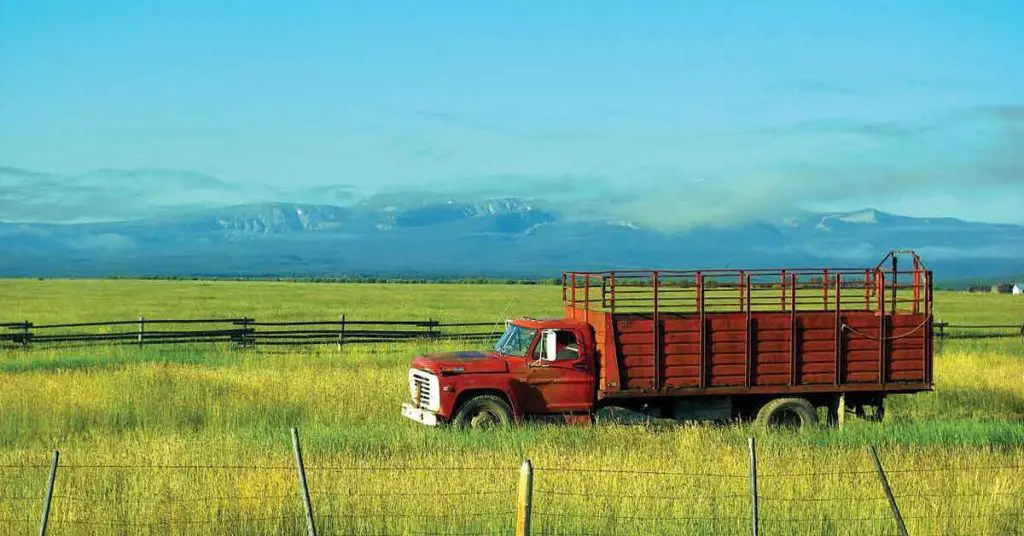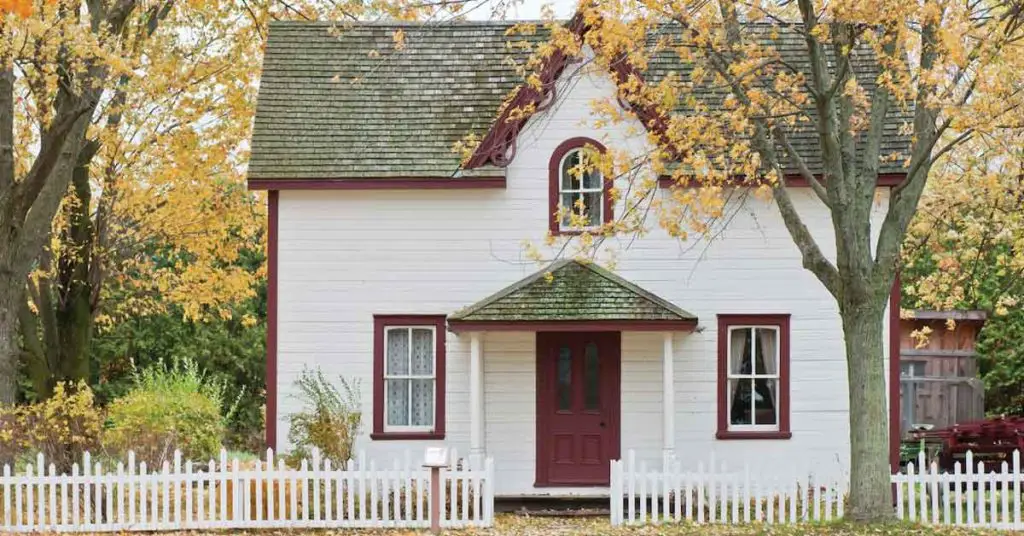Introduction
Choosing the ideal homestead vehicle is a crucial component of homesteading and may make a significant difference to the effectiveness and success of your operations. The right vehicle can offer essential assistance for various activities, from moving equipment and supplies to negotiating rugged terrain and reaching remote sites. In this article, we’ll examine how to choose the ideal homestead vehicle, the significance of choosing the ideal homestead vehicle, essential things to remember when looking, and several kinds of vehicles that are appropriate for homesteading.
Significance of a Sturdy Vehicle for Homesteading
When meeting your homestead’s unique needs and demands, a dependable homestead vehicle can make all the difference. The proper vehicle can ensure that you are well-equipped to handle the needs of your homestead, whether you are transporting cattle, towing farm equipment, or making a long journey for supplies.
Criteria to Consider While Choosing a Homestead Vehicle
It’s essential to consider several variables that will affect your choice when finding the ideal homestead vehicle. These variables include your personal preferences and priorities, the requirements of your homestead, and the kinds of duties the vehicle will need to carry out. By carefully weighing these considerations, you may make an informed choice and choose a vehicle that will serve you well for many years.
Vehicle Models that are Appropriate for Homesteading
We’ll look at various appropriate vehicles for homesteading in this post, from rigid pickup trucks and adaptable SUVs to all-terrain vehicles and eco-friendly alternatives. You can select the ideal vehicle and make an informed decision by being aware of various models’ distinctive qualities and capabilities. Let’s start and learn how to pick the best homestead vehicle to support your self-sufficient way of life.
Evaluation of Your Homesteading Needs
Evaluating your wants and requirements before considering certain vehicle possibilities for your homestead is essential. You can ensure that your chosen vehicle will suit your everyday jobs and activities by thoroughly analyzing the various facets of your homesteading lifestyle. We’ll review four essential aspects to consider when determining your homestead needs in this article, including topography and climate, sorts of duties and activities, frequency, and distance of journeys away from the property, and family size and passenger capacity requirements.
You can refer our article, Things to Know Before Starting a Homestead: Beginner’s Guide, for more information on this topic.
Environment and Terrain Factors
Your homestead’s geography and climate are crucial considerations when choosing a vehicle. You’ll need a vehicle with the necessary capabilities, such as four-wheel drive or all-wheel drive if your property is situated in a location with rough terrain or harsh weather conditions to ensure safe and dependable mobility. Consider the sorts of roads and walkways on your property, as these factors may affect the ground clearance and suspension system your vehicle needs.
Activities and Task Types on a Homestead
Your decision-making process should be heavily influenced by the precise tasks and activities your vehicle will be required to assist. For instance, you’ll need a vehicle with enough payload and towing capacity to tow farm equipment, haul cattle, or transport hefty loads. Consider listing your most frequent homesteading chores and the vehicles you’ll need to support them. This will aid in directing your search and guarantee that the vehicle you choose is well-equipped to match your objectives.
Number and Length of Off-Homestead Trips
The frequency and length of your off-homestead travels are crucial considerations. You’ll need a vehicle with good fuel efficiency and a comfortable ride if you routinely travel long miles for supplies or other necessities. Additionally, think about the kinds of roads you’ll be using on these travels, as this may affect the performance and safety characteristics your vehicle must have.
Size of the Family and Necessary Passenger Capacity
Finally, consider the size of your family and the number of passengers your vehicle needs to accommodate. If you routinely transport extra people or have a large family, you’ll need a vehicle with enough room for passengers and freight. In contrast, if you’re a single homesteader or have a smaller family, you can emphasize other aspects, including the vehicle’s ability to haul a load or go off-road.
In conclusion, you may make an informed choice and choose a vehicle that will successfully support your homesteading lifestyle by carefully evaluating your needs and considering elements like terrain, climate, tasks, activities, off-homestead travels, and family size. You’ll be better able to select the ideal vehicle for your homestead if you have a clear awareness of your needs.
Key Characteristics of a Homestead Vehicle
It’s time to investigate the significant characteristics crucial in a homestead vehicle once you’ve evaluated your homestead demands. A vehicle’s ability to assist your everyday jobs and activities while offering a dependable and comfortable commuting experience depends on its characteristics. The five key factors to consider when selecting a homestead vehicle are four-wheel drive or all-wheel drive, towing and payload capacity, fuel efficiency and eco-friendly options, durability and ease of maintenance, and storage and cargo space. These features are covered in detail in this article.
You can read our article, Importance of Seasonal Vehicle Maintenance, for more information on this topic.
Capabilities for Four-Wheel Drive (4WD) or All-Wheel Drive (AWD)
A vehicle with four-wheel drive (4WD) or all-wheel drive (AWD) capability is necessary for many homesteaders. Thanks to these systems’ improved traction and control on rough terrain and in bad weather, you can securely explore your homestead and the surrounding areas. Based on your terrain and climate requirements, consider whether 4WD or AWD is a must-have option when choosing a vehicle.
Capacity for Towing and Payload
Heavy goods, such as agricultural machinery, animals, or construction supplies, are frequently transported in or towed by a homestead vehicle. Therefore, picking a vehicle with the payload and towing capacity is essential to handle these jobs. Verify the vehicle’s specifications to make sure it satisfies your needs in this area.
Fuel Economy and Environmentally Friendly Options
Any vehicle’s fuel efficiency is crucial, but homesteaders who frequently travel far distances for supplies or other needs should pay particular attention. Choosing a vehicle with good fuel economy can help you save fuel money and lessen your environmental impact. Additionally, consider looking into environmentally friendly vehicle options like hybrids or electric vehicles, which might improve your homestead’s sustainability efforts.
Durability and Maintenance Ease
Homesteading may be hard on automobiles, so picking a respected make and model for their dependability and longevity is essential. Choose vehicles with a reputation for enduring performance and a proven track record of upkeep and repair. As these factors might affect the total cost and convenience of maintaining your vehicle, consider the accessibility of replacement components and servicing facilities as necessary.
Space for Cargo and Storage
A homestead vehicle must have enough storage and freight space because you’ll need to be able to transfer supplies, tools, and other stuff. Consider whether additional storage devices, such as roof racks or truck bed storage systems, may be required to meet your demands when choosing a vehicle with plenty of cargo space.
In conclusion, you can choose a vehicle that is well-suited to satisfy the requirements of your homesteading lifestyle by prioritizing essential attributes like four-wheel drive or all-wheel drive capabilities, towing and cargo capacity, fuel efficiency, durability, and storage space. Your chosen vehicle will support your everyday tasks and contribute to the overall success of your homestead with the necessary features in the proper proportions.
Frequently Used Homestead Vehicles
Now that you know the essential qualities to search for in a homestead vehicle, it’s time to investigate several well-liked choices that can meet your requirements. Many different types of automobiles are on the market, each with unique benefits and abilities. Pickup trucks, sport utility vehicles (SUVs), crossovers, vans, and minivans, as well as all-terrain vehicles (ATVs) and utility vehicles (UTVs), are some of the five prominent homestead vehicle options that will be covered in this article.

Pickup Trucks
Many homesteaders prefer pickup vehicles because of their adaptability, towing capacity, and payload capacities. They offer enough room for transporting supplies and equipment, and they may be modified with various attachments and storage options to increase their usefulness. Many pickup truck models also include four-wheel drive, which makes them suitable for rugged terrain.
SUVs (Sport Utility Vehicles)
Due to their combination of passenger capacity, baggage space, and off-road capability, SUVs are popular among homesteaders. Many SUVs have all-wheel or four-wheel drive, which makes them a dependable option for negotiating a variety of terrains and climates. In addition, SUVs frequently have a higher ground clearance than other types of vehicles, which can help drive off-road or navigate rugged terrain on your property.
Crossovers
Crossovers are a cross between SUVs and passenger cars. They provide a balance between adaptability, passenger capacity and fuel efficiency. Crossovers might still be a good choice for homesteaders with less demanding transportation requirements, even though they have different towing and payload capacities than pickup trucks or large SUVs. Many crossovers are also equipped with all-wheel drive, which helps increase grip and control in slick weather.
Minivans and Vans
Vans and Minivans are sensible options for homesteaders with larger families or those who frequently transport groups of people since they offer plenty of passenger and freight capacity. Vans and Minivans can still be a practical option for drivers who value passenger capacity and comfort more than other amenities, even though they may have different off-road ability or towing capacity than pickup trucks or SUVs.
ATVs (All-Terrain Vehicles) and UTVs (Utility Task Vehicles)
Specialized off-road vehicles like ATVs and UTVs are made for tackling rugged terrain and completing jobs. Even while they might not be your primary household vehicle, they can still be helpful to your fleet if you need them for a specific job, including carrying light loads, negotiating narrow locations, or doing specialty duties. You may customize these vehicles to meet your needs because they frequently have movable extras and functions.
In conclusion, you can find the most excellent fit for your homesteading demands and lifestyle by investigating popular options for vehicles used for homesteading, such as Pickup Trucks, SUVs, Crossovers, Vans and Minivans, as well as ATVs and UTVs. You can make sure that your homestead vehicle will be a dependable and an asset, supporting your daily duties and enhancing the overall success of your homestead by choosing a vehicle that is in line with your unique requirements and preferences.
Suggestions on Buying a Homestead Vehicle
It’s time to think about the buying process after deciding on your top choices for a homestead vehicle. Making a well-informed choice that satisfies your demands and budget is essential because purchasing a vehicle entails a considerable financial commitment. We’ll go through advice for buying a homestead vehicle in this article, including how much money you need to spend, whether to buy new or used, how to test drive and research models, and what warranty and service choices are available.
Please note that the information provided in this article is not financial advice. Always conduct your own research and consult with a financial professional before making any significant financial decisions related to purchasing a homestead vehicle.
Budgetary Considerations and Available Financing
Establishing your budget and researching your financing alternatives is crucial before you begin looking for a homestead vehicle. How much you can easily spend on a vehicle depends on your financial status. Remember to include additional expenses in your budget, such as insurance, registration, taxes, and maintenance. To locate the best alternative for your needs after determining your budget, investigate financing options like loans or leases.
Vehicles: New vs. Used
You must choose between buying a new or a used one as your homestead vehicle. Although they can cost more, new vehicles frequently have more modern amenities, cutting-edge technology, and manufacturer guarantees. Conversely, used vehicles are usually less expensive but may need more maintenance and have a shorter lifespan.
A used vehicle’s history, including prior owners, accidents, and maintenance records, should always be investigated. You can make a better-informed choice if you know the vehicle’s general condition.
Researching and Testing Various Vehicle Models
It’s crucial to test drive your selected vehicle models before making a purchase to ensure they fit your wants and expectations. Pay particular attention to the vehicle’s handling, comfort level, and potential problems you may discover throughout the test drive.
In addition to taking a test drive, research the vehicle models you’re considering. Compare various models’ features, characteristics, and performance by reading expert and first-hand reviews. You can use the information from this research to make an informed choice based on your property’s particular needs.
Options for Service and Warranties
It’s crucial to consider warranty and service options when buying a homestead vehicle. A thorough warranty can reassure you and shield you from unforeseen maintenance costs. Consider coverage duration, exclusions, and deductibles when comparing warranties.
Additionally, if you reside in a rural area, consider whether your preferred vehicle has any nearby service centers. A vehicle that is expensive or difficult to maintain could rapidly become a liability rather than a benefit for your property.
In conclusion, you may make an informed choice that meets your needs, interests, and budget by heeding these suggestions for buying a homestead vehicle. You’ll be better prepared to locate the ideal vehicle to support your homesteading lifestyle and ensure a smooth and joyful journey on the road to self-sufficiency if you take the time to study thoroughly, test drive, and consider warranty and service options.
Recap: How to Choose the Ideal Homestead Vehicle
To ensure a productive and profitable homesteading lifestyle, choosing the appropriate vehicle for your property is essential. We’ve discussed the value of determining your homestead needs throughout this post, looked at popular homestead vehicle options, examined key features in potential vehicles, and provided advice for making an informed purchase. You can discover a vehicle that supports your homesteading endeavors and particular way of life by thoroughly assessing your needs, priorities, and budget.
Do Your Own Research (DYOR) and Assess Your Requirements and Priorities Carefully
Remember to take your time, do comprehensive research, and think about both the practical and personal sides of your decision as you continue your quest for the ideal homestead vehicle. Your vehicle will be essential to your day-to-day survival on the homestead, from delivering livestock and supplies to assisting you in maintaining your property. Your productivity will increase, and your whole experience with homesteading will be improved if you invest in a dependable and appropriate vehicle.
We conclude by expressing our hope that this article has been a beneficial resource for you as you search for the appropriate homestead vehicle. You’ll be well on your way to locating the ideal support system for your journey toward a sustainable, self-sufficient, and joyful homesteading lifestyle with careful consideration and intelligent decision-making.
Disclaimer: The information provided in this article is for general informational purposes only and is not intended to be a substitute for professional advice. The author of this article does not claim to be an expert in homesteading and the information provided should not be relied upon to make decisions about your own homesteading journey. Please do your own research and consult with a qualified professional before making any decisions about your homestead.
Share via:
Shaun Alexander is the main writer and editor for HomesteadingSimple.com. With a strong passion for homesteading and sustainability, Shaun has dedicated his life to learning and sharing information about a simple, fulfilling existence tied to the land. His expertise ranges from gardening and livestock management to off-grid living and DIY projects, reflecting the diverse skills necessary for a successful homesteading lifestyle. Shaun’s goal is to inspire and educate others about the possibilities of homesteading, whether in rural, suburban, or urban settings, and to provide practical advice and tips for both beginners and seasoned homesteaders. He believes in a future where more people return to their roots, embracing a life of self-sufficiency and harmony with nature.





